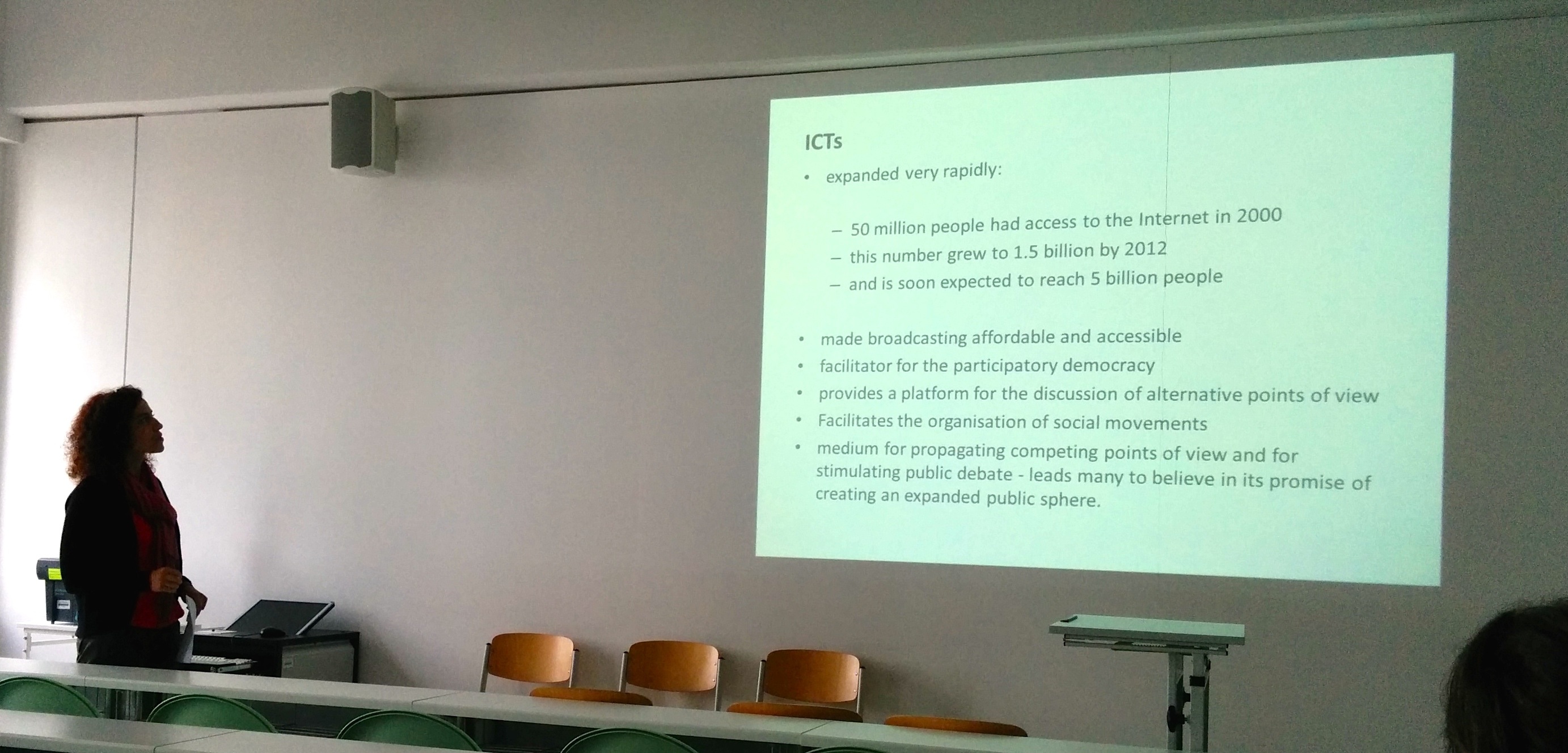Degrowth imagines a radically different future, which is why so many have connected to its message. But it is a future which seems very distant from today’s political, economic and social system. So what does it mean, in practical terms, to organize towards a degrowth future in a highly commodified and competitive present?
Fundraising for degrowth
I have been coordinating the fundraising working group of degrowth.info for the last 9 months, since we decided to conduct
an overhaul of the website which we don’t have the budget for, but clearly need. I have been paid 10€ per hour through a limited-contract of six hours per week, meaning a total cost to the webportal of slightly over 2,000€. Luckily, I have managed to fundraise more than I have cost. Nonetheless, it’s a crazy logic, and one which the degrowth movement itself wants to move away from.
The degrowth.info webteam has come up with strict criteria for whom we
will and
will not apply for funding from. However, this leaves us mainly with foundations where the grant giving process is highly selective and often invitation-only. We applied for over ten grants and were rejected from all of them. Instead, we had to organize
a crowdfunding campaign to ask the wider degrowth movement to fund us. This is a difficult proposition, given that many of us involved in the movement are in low-paid positions, often with precarious contracts, and likely volunteering much of our time to unpaid activism or organizing. As such, we realize the unsustainability and tensions of relying on this group of people for our ongoing funds.
On the other hand, it’s clear that the webportal requires at least one or two coordinators working a higher amount of dedicated hours for it to function well, and this has so far been made possible by compensating these people financially. This is not to shame the volunteers that are stretched thin and cannot commit more time to the webportal, or would require financial support in order to do so. It’s simply a recognition of the challenges that degrowth and other radical movements face by virtue of operating in a capitalist society.
Precarity and conference organizing
A similar challenge occurred in the Vienna degrowth conference organizing process. A juncture was reached, where people could not volunteer more time without being paid. A multitude of considerations entered the conversation: should compensation be based on needs, or responsibilities and tasks? Should compensating organizers be prioritized over panelists?
The Vienna conference food working group aimed to lower its share of the budget by seeking out in-kind contributions, i.e. donations. Joya, a dairy and non-dairy milk producer, offered to donate 450L of plant-based milk for the conference, with a total value of around 1,000€. However, they required that we advertise Joya at the event, which was against the conference’s rules, so we turned down the offer.
Most people would agree that (financially) supporting people who commit massive amounts of time and energy to the degrowth movement is a good idea, save a small group of hardcore decommodifiers. But how should we decide what rules and ideals should orient us as a movement? Perhaps it would have been strategic (in line with the theme of the conference) to take up Joya’s offer, as it would have concretely made the lives of some of the conference organizers less precarious? The money saved would have covered about three months of rent in Vienna.
So, how should we effectively, sustainably, and fairly support the people who volunteer their time and energy to advance the degrowth movement? What are our red lines and when should strategic compromises be made?
A glimpse of such a blend can be seen in some of the innovative approaches being tested in the Vienna degrowth community. We will ask high(er) income professors to enter an income-sharing scheme, for a limited time in advance of the conference, so we can pay some of the organizers for a small part of the massive amount of time they are contributing.
Between pragmatism and idealism
There may have to be a recognition on the part of the degrowth movement that organizing solely along the lines of a degrowth-ideal may lead our projects to fail. Of course, the ends cannot always justify the means. But maybe learning how to better occupy the grey space in between pragmatism and idealism is a required next-step for the degrowth movement if it wants to seriously become a counter-hegemonic project.
If you can support our web overhaul in this crazy not-yet-degrowth world, then
please donate to our crowdfunding campaign. Then we can stop spending time asking for money and start improving the site to support the degrowth movement!
About the author
Nathan Barlow
Nathan is currently a PhD candidate at the WU in Vienna. His research focuses on degrowth and strategies for social ecological transformation. He is an active member of Degrowth Vienna, and recently edited a collected volume titled "Degrowth & Strategy: how to bring about social ecological transformation". He enjoys working with well-organized groups to realize collective goals.
More from this author


